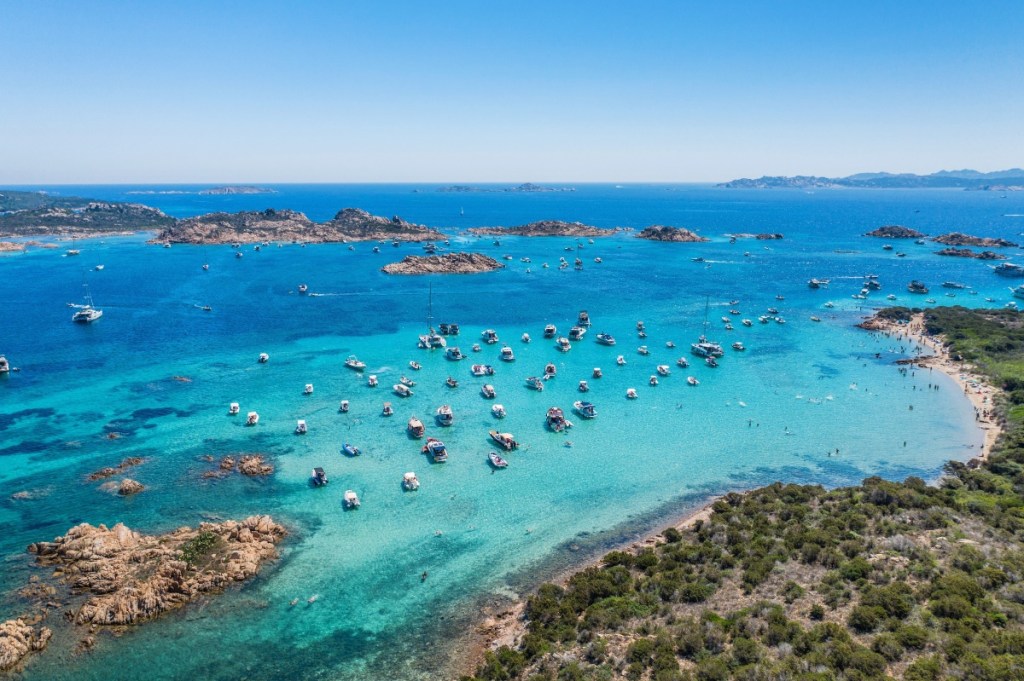New research has found that nearly 7 in 10 Americans suffer from “travel dysmorphia.”
I know what you’re thinking: wtf is travel dysmorphia? You’ve likely heard of body dysmorphia disorder, which is a mental health condition that causes individuals to fixate on perceived flaws regarding their physical appearance.
While travel dysmorphia isn’t an actual diagnosable disorder, it refers to a preoccupation with travel—or, in this case, lack thereof. People with this dysmorphia basically feel as though they haven’t traveled nearly enough, especially when comparing themselves to others.
The study, conducted by Talker Research on behalf of Scenic Group, found that only 10% of Americans feel they’ve achieved their travel goals.
“These findings speak to the deeper emotional realities surrounding modern travel. Travel has become more than a milestone—it’s now a marker of fulfillment and success,” said Ken Muskat, President of Scenic Group USA and LATAM, per Talker Research. “People aren’t just falling behind on destinations; they’re falling behind on the experiences they thought would define this chapter of life, and they’re not sure how to catch up.”

Do You Have Travel Dysmorphia?
To me, travel dysmorphia sounds like yet another consequence of social media, where people feel ashamed for not being able to access life’s luxuries.
There are, of course, two sides to this issue: on one hand, most of us can barely afford rent and groceries, much less travel the world. It can be frustrating to see a rich influencer book more trips in one year than we have in a lifetime, but hey, can we blame them for taking advantage of the opportunities they’ve been handed?
On the other hand, many travelers accept the risks of following a non-traditional path, either making a living by traveling or simply sacrificing their sense of security and stability to pursue their dreams. Some put themselves into debt; others reject societal expectations, like buying a home, settling down, or starting a family.
Neither is right nor wrong.
What Is Driving Travel Dysmorphia?
I think we can all relate to the feeling of missing out on our own lives. Every day, while browsing my social media feed, I see another friend or influencer traveling to a new location. One person is in Greece for a wedding; another is backpacking in Japan; a third is solo-traveling in Costa Rica, where learning how to surf and live like a local.
It’s enough to make anyone feel like they’re behind.
In fact, according to the survey, 47% of Gen Z said influencer and YouTube content contributes to their travel dysmorphia. Furthermore, 55% reported that social media makes them feel like they’re falling behind in life.
Is this the influencer’s (or your free-spirited best friend’s) fault? Of course not. No one is responsible for living according to someone else’s rules or comfort level, so as not to trigger insecurity or jealousy in another person.
That being said, this is heartbreaking data, pointing to a major disconnect between influencer culture/social media and reality—as well as a broken system that values labor over fulfillment, but I digress.
What we often don’t see online are the countless other individuals who are leading more practical lifestyles, working mundane 9-to-5s, and following repetitive routines. And so, we believe we’re the only ones missing out.

What’s Stopping Us From Traveling?
I think we can all agree that traveling requires time off from work (if you’re working in the office or on a strict schedule), money, freedom, and—typically—a lack of personal obligations, like taking care of kids or a sick parent.
According to the survey, some of the most common obstacles preventing people from traveling include cost (63%), work commitments (19%), family responsibilities (19%), and logistical fatigue (18%).
This begs the question: Is traveling reserved for the privileged? Are the rest of us simply destined to stay miserable?
I don’t believe so. Although it’s certainly more accessible to those who actually have the resources to do it, there are plenty of ways to travel on a budget or pursue a digital nomad lifestyle.
However, this also doesn’t mean you can’t be satisfied in your stable career and small town, either.
It is essential to recognize that social media isn’t always an accurate representation of how most people live. Most of us can’t bounce around the world on a whim, living out of a van or hopping on a train to the next location for months at a time.
That’s not to dissuade you from trying to cultivate that lifestyle, if that’s your dream. It’s certainly achievable, but it does come with its sacrifices—and it does, unfortunately, require careful planning and the necessary resources.
Moral of this story? If you want to travel more, try to find realistic ways you can do so—even if just a weekend trip somewhere drivable. Who’s to say that doesn’t count as “traveling”?
And instead of comparing your life to an influencer’s, let their content inspire you. Otherwise, there’s an unfollow button for a reason.
The post Travel Dysmorphia Is a Real Thing—Do You Have It? appeared first on VICE.




